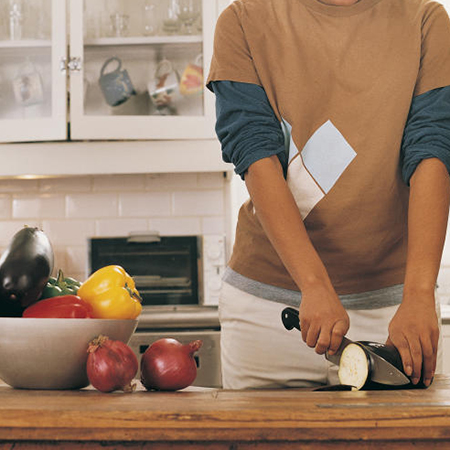
It is Harriet Van Borne, the American newspaper columnist, who so aptly equated cooking to love, saying, “Cooking is like love. It must be entered into with abandon or not at all.”
Most women who hoped to get hitched honed their cooking skills at their mothers’ knees. Or from an aunt.
That was once upon a time.
Today, the joke about Nairobi women is that they no longer cook like their mothers, but rather, drink like their fathers.
Indeed, eating together as a family was a must in most homes. Just why culinary skills were among the top three requirements every man looked for in a woman.
That, it seems, is so 1945.
Feminist notion
The modern, educated Nairobi woman cannot cook, will not cook, and has no idea about cooking. She does not value cooking like her mother. Blame it on her recently done French manicure if you wish!
The Nairobian sought opinion on the rising numbers of city women who cannot cook, beginning with the new talk in town, Idah Nguma, the reigning Miss World Kenya and Miss Machakos County.
Idah thinks men should share household chores with women, though she says she is willing to do the cooking 70 per cent of the time. “Of course, I have to cook for him. It’s the reason you are there in the first place. However, we live in a modern world where no one really expects that a woman’s place should be in the kitchen,” explains the beauty queen. She adds that, “Cooking ugali and chicken is my favourite.”
Kawira Mugambi, the reigning Miss University of Nairobi thinks cooking is sort of a woman’s calling. “Women are homemakers by design, so naturally, they will want to take care of their families, and this involves making sure they eat well and stay healthy,” says Kawira.
But she also recognises that times have changed: “Most Kenyan women in this day and age are so much into feminism and being empowered and have a misconceived notion that cooking for your man is being subordinate.”
She is liberal about the subject. As far as she is concerned, the whole issue boils down to individual interests. She admits that she only cooks “out of necessity.”
Kawira says that her grandmother makes the best mukimo, but despite all her efforts, she has never been able to a whip up a mean mukimo like her granny’s. She is considering taking cooking lessons to perfect her skills.
Shamina Kiptoo, Miss Kenya 2006, supports the idea of women cooking for their men and family. “It is a sign of a loving and caring woman and can strengthen the love in the family,” she says. Shamina says she loves cooking as it is one of her hobbies. “I’m good with all types of food, but I’m best with Swahili dishes,” says Shamina.
Like most of the people we spoke to, she singles out the Western lifestyle that Kenyan women have embraced as the source of the problem: “They ape too much, forgetting traditional African teachings and values.”
Hon Millie Odhiambo-Mabona is surprised that most Nairobi women don’t know their way around the kitchen. But she says it is no big deal whether a woman knows how to cook or not. “It is not a big deal if a woman can cook, as long as she has a loving and supportive family. I cook occasionally for Mabona, if and when time allows,” she says.
Expressing love
A comparative study of the cooking cultures of many communities reveal that in most villages, women still perform prescribed cultural roles. At the Kenyan coast, cooking is a skill cherished by women. “Cooking is seen as a way of taming men. It is an important and valued role that women have accepted,” explains Lilian Tabu, who was born, raised and is married at the Coast.
Carole Mandi, the founder of Carole Mandi Media, believes that cooking depends on the woman, her interests and time commitment. Carole notes that cooking is an expression, and that for those willing to learn, there are countless cooking schools, chefs, TV shows and online tutorials to learn from.
“Not every woman enjoys cooking and they shouldn’t feel they have to be able to cook, since they can still delegate that function. However, if a woman loves cooking and views it as a means of expressing her love for her family, then by all means yes, cook away!” she says.
Carole reveals that she loves cooking and says that food provides an ideal and special avenue to bond with family and friends.
Eating together
“I always plan to cook over the weekends, although sometimes I prepare meals during the week or whip up a salad. My favourite meal is pilau, fish and chicken curry. It has been said that a family that prays and plays together, stays together. I can add that the family that eats together grows together. During meal times, families have an opportunity to open up and talk, which is rare these days when TV and smartphones have taken over our lives, and even though we communicate more through these gadgets, the engagement is not as deep.”
Preoccupied with looks
Back in the day, families trooped home after church service on Sundays. But today, all roads lead to nyama choma dens or, increasingly, supermarket kitchen sections after Sunday service.
This was unimaginable a few years back. University of Nairobi anthropologist Paul Omondi reasons that, “Women are more preoccupied with their looks. They would rather spend a whole day making their hair than prepare food for their family.” He adds that, “Times have changed and expecting women to play the same traditional role in the kitchen could be unrealistic.”
Omondi gives three reasons for this state of affairs. First is the ready availability of food in the market, including restaurants, outside caterers and ready-made take-aways in supermarkets. Number two, he says, is the availability of alternative sources of labour. “These have made it easy for women to delegate their traditional roles. Wives no longer have to cook for their husbands. Previously, wives insisted on preparing meals for their husbands, even if the house help cooked and served everyone else. But things have changed as women become busier pursuing career and business interests,” says Omondi.
Too busy to cook
He adds,“Women now leave for work very early in the morning and return in the evening. Some work at night, over the weekend, hence have no time to prepare elaborate meals as was traditionally the case.”
It is not uncommon for single city women to jostle with bachelors in food joints late in the evening as most are too tired, lazy or too ‘posh’ to cook.
Apparently, buying already cut sukuma wiki and beef is no longer fashionable.
 The Standard Group Plc is a multi-media organization with investments in media
platforms spanning newspaper print
operations, television, radio broadcasting, digital and online services. The
Standard Group is recognized as a
leading multi-media house in Kenya with a key influence in matters of national and
international interest.
The Standard Group Plc is a multi-media organization with investments in media
platforms spanning newspaper print
operations, television, radio broadcasting, digital and online services. The
Standard Group is recognized as a
leading multi-media house in Kenya with a key influence in matters of national and
international interest.









